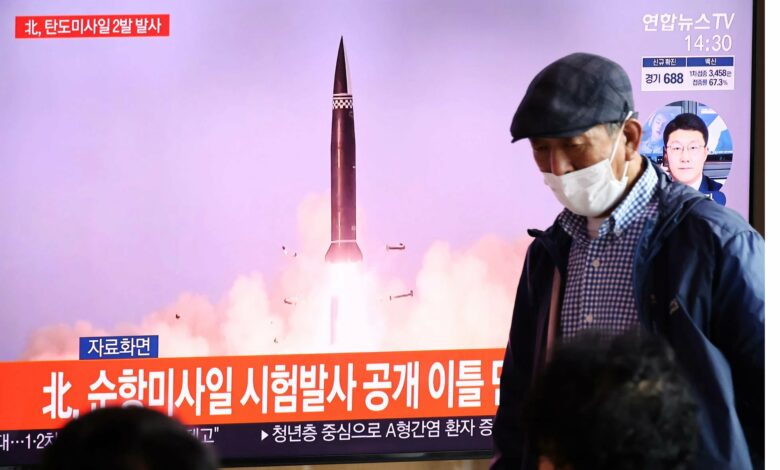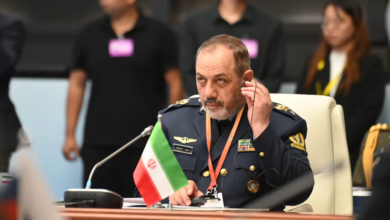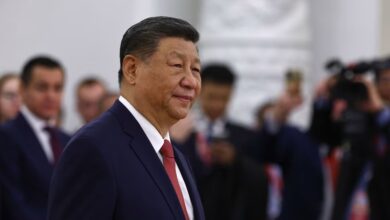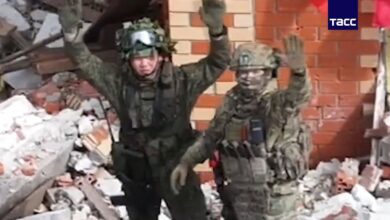
SEOUL, Sept 15 (Reuters) – North Korea fired a pair of ballistic missiles off its east coast on Wednesday, South Korea’s military said, ratcheting up regional tensions just days after testing a cruise missile with possible nuclear capabilities.
The launches came amid a flurry of activity on the peninsula, including high-level diplomatic talks and South Korea’s testing a newly developed submarine-launched ballistic missile of its own.
Pyongyang has been steadily developing its weapons programme amid a standoff over talks aimed at dismantling its nuclear and ballistic missile arsenals in return for U.S. sanctions relief. The negotiations, initiated between former U.S. President Donald Trump and North Korean leader Kim Jong Un in 2018, have stalled since 2019.
“North Korea fired two unidentified ballistic missiles from its central inland region toward the east coast, and intelligence authorities of South Korea and the United States are conducting detailed analysis for further information,” South Korea’s Joint Chiefs of Staff (JCS) said in a statement.
The missiles were fired just after 12:30 p.m. (0330 GMT), flying 800 km (497 miles) to a maximum altitude of 60 km (37 miles), the JCS reported.
South Korea’s military has raised its level of surveillance, and is maintaining a full readiness posture in close cooperation with the United States, the JCS added.
The U.S. military’s Indo-Pacific Command said North Korea’s missile launches did not pose an immediate threat to U.S. personnel, territory, or allies, but highlight the destabilising impact of its illicit weapons programme.
Japanese Prime Minister Yoshihide Suga called the missile launch “outrageous”, and strongly condemned the action as a threat to peace and security of the region.
Japan’s Coast Guard said the missiles landed outside its exclusive economic zone.
Both Suga and South Korean President Moon Jae-in would convene sessions of their national security councils to discuss the launches, according to their offices.
MISSILE RACE
Moon was attending the test firing of a South Korean submarine-launched ballistic missile when word came of the North Korean launches, its first ballistic missile tests since March this year.
Both Koreas have been developing a range of new missiles and other weapons, but North Korea’s ballistic missile systems have been banned by United Nations Security Council resolutions.
In November 2017, North Korea tested an intercontinental ballistic missile capable of reaching the entire United States and declared it had become a nuclear power. It has since focused mainly on testing shorter range missile and rockets.
Analysts say shorter range missiles are designed to play a major role in the event of a war by evading missile defenses to strike targets in South Korea or Japan.
North Korea this year declared it is seeking to miniaturise nuclear warheads, which could potentially be fitted to tactical missiles.
“Despite its self-imposed pandemic lockdown, North Korea continues to prioritise military modernisation,” said Leif-Eric Easley, international studies professor at Ewha Womans University in Seoul.
FLURRY OF DIPLOMACY
The latest launch came as foreign ministers of South Korea and China held talks in Seoul amid concerns over North Korea’s recent cruise missile test and the stalled denuclearisation negotiations between Pyongyang and Washington. read more
North Korea said it successfully tested a new long-range cruise missile last weekend, calling it “a strategic weapon of great significance.” Analysts say that weapon could be the country’s first cruise missile with a nuclear capability. read more
Chinese Foreign Minister Wang Yi, when asked about the earlier cruise missile tests, said all parties should work to promote peace and stability on the Korean peninsula.
“Not only North Korea but other countries are carrying out military activity,” he told reporters. “All of us should make efforts in a way that helps resume dialogue.”
In a meeting with Wang on Wednesday, Moon asked for China’s support to restart dialogue, saying North Korea has not been responding to offers from South Korea and the United States for talks or engagement such as humanitarian aid, Moon’s spokesperson said.
The nuclear envoys of South Korea, Japan, and the United States were meeting in Tokyo this week as well. read more
U.S. envoy for North Korea, Sung Kim, said on Tuesday the United States has no hostile intent towards Pyongyang and hopes it responds positively to offers for talks on its weapons programmes.
Kim was due to meet with his Japanese counterpart for a bilateral meeting on Wednesday.
Reporting by Hyonhee Shin; additional reporting by Ritsuko Ando in Tokyo; editing by Lincoln Feast




